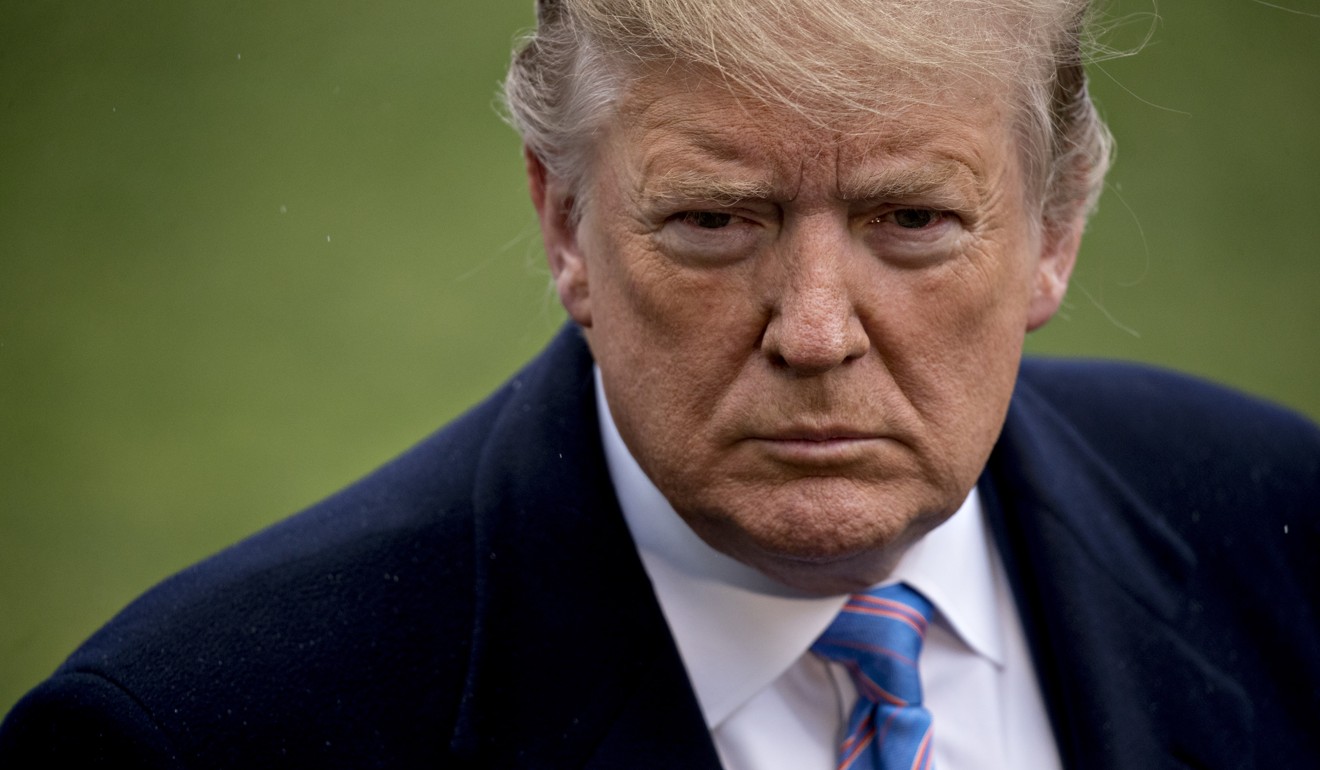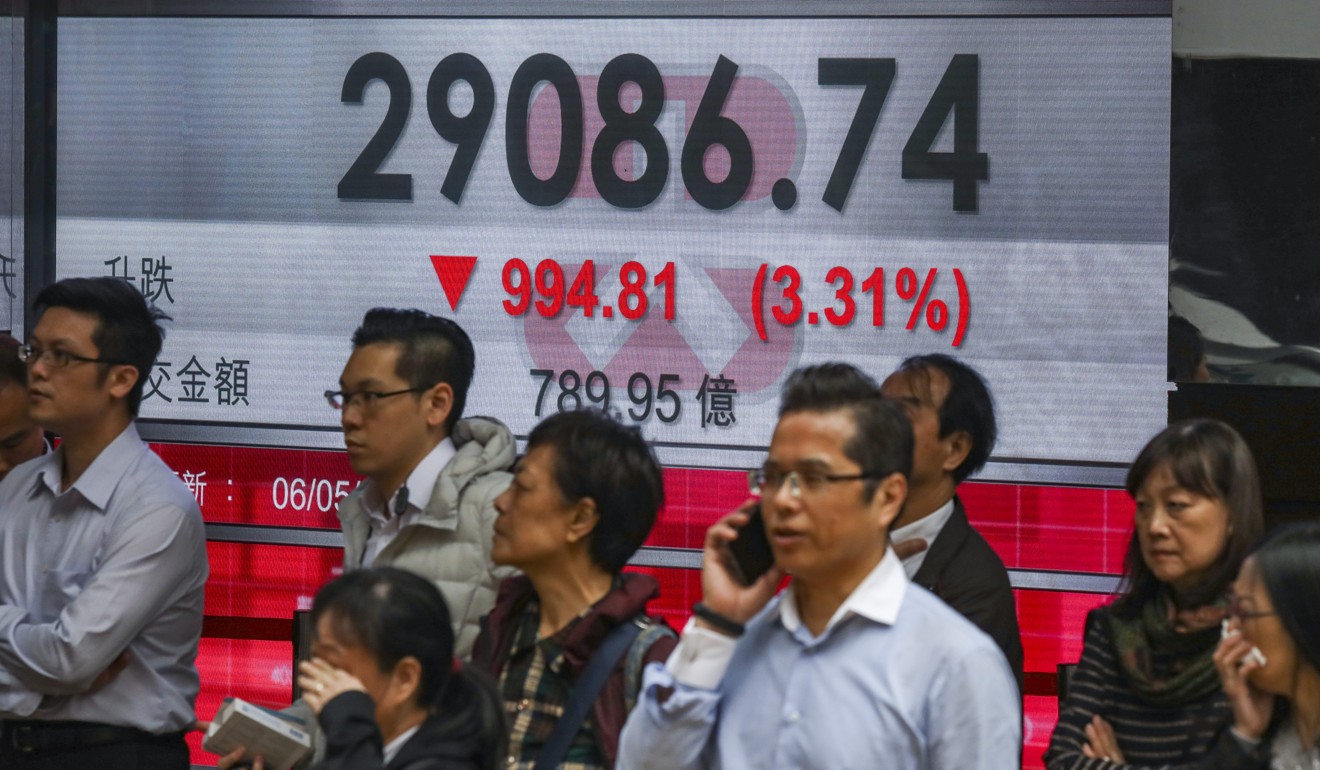
Financial Secretary Paul Chan says risks manageable after Donald Trump’s threat to increase tariffs sends shock waves through Hong Kong’s markets
- Talks between Beijing and Washington to end US-China trade war took dramatic turn when Trump revealed 10 per cent tariffs imposed on US$200 billion worth of Chinese goods would be raised to 25 per cent
- Chan says government puts health of banking sector and capital market under scrutiny to mitigate risks arising from sudden deterioration in relations between the economic superpowers
It was a tweet that sent shock waves to Hong Kong’s stock market and weakened investor confidence, but the city’s financial chief insisted on Tuesday the overall risks were manageable.
Talks between Beijing and Washington to end the US-China trade war took a dramatic turn just after midnight on Sunday, Hong Kong time, when US President Donald Trump revealed on Twitter the 10 per cent tariffs imposed on US$200 billion worth of Chinese goods will be raised to 25 per cent on Friday.
But Financial Secretary Paul Chan Mo-po said the Hong Kong government had put the health of the banking sector and capital market under tight scrutiny to mitigate risks arising from a sudden deterioration in relations between the two economic superpowers.
Along with a roller-coaster ride in the regional stock markets, the city’s benchmark Hang Seng Index recouped a fraction of the lost ground on Tuesday and climbed 153 points or 0.52 per cent to 29,363. It followed a fall of 871 points or 2.9 per cent on Monday.

“The United States has been unpredictable in its stance on the trade war,” Chan said. “We need to keep a reasonable expectation while preparing ourselves for everything we can as a precaution.”
Trump also threatened to impose the same tariffs on US$350 billion worth of Chinese goods that do not yet have any US duty imposed, saying a stern “no!” to Beijing’s attempt to renegotiate the deal.
Despite the fresh threats, a Chinese delegation on Monday pressed on with its trip to Washington for trade talks.
Chan said Hong Kong’s trade industry was exposed to higher risks as Chinese exports destined for the US through Hong Kong or the other way round combined accounted for almost 9 per cent of the city’s re-exports last year.

“The trade industry will be exposed to higher risks but the system risks overall are manageable,” he said. “We are concerned about the weakened investor confidence and volatile financial market.”
He pointed out Hong Kong was not the only part of the world affected by the trade war, which also pestered global financial markets.
“We will make sure our financial security is sound,” he said.
Chan said Hong Kong would closely monitor the health of the banking sector by ensuring banks had sufficient liquidity and working capital, and good asset quality.
As for the city’s stock market, volatility was unavoidable, but its trade settlement so far was healthy, he said.

Danny Lau Tat-pong, honorary chairman of the Hong Kong Small and Medium Enterprises Association, said the new tariffs were worrying.
Lau, owner of a factory in Dongguan producing aluminium curtain walls for skyscrapers, said the company had three containers of products set to be exported to the US on Wednesday next week. The US market accounted for one-third of the company’s revenue while the rest came from the mainland China and Asia markets.
“I am not sure who will foot the bill for the extra 15 per cent tariffs after the US importer agreed to pay for the 10 per cent tariffs previously for this batch of goods,” he said. “Our net profit margin only varies between 3-5 per cent. The 25 per cent tariffs are absolutely not manageable.”

